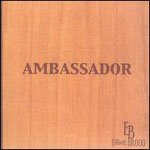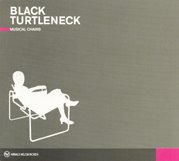 AmmoncontactWith VoicesNinja Tune
AmmoncontactWith VoicesNinja Tune, 2006
This is a collaboration between Carlos Nino and Fabian Ammon, who I gather are pretty involved in the LA music scene. The album is dedicated to J. Dilla, which speaks to the production style Ammoncontact are into – MPCs and trap kits, dubby sounds and soulful vamps. The record could work as an instrumental, arguably better, but I guess that’s the whole point of the “with voices” angle. And I salute the ambitiousness of it.
There are some pretty heavy medium-fi players on this album, including
Daedelus, and
Cut Chemist, as well as jazz outsider greats like
Yusef Lateef. The best tracks put down a groove with oblique loops over top: asymmetrical rhymes, lopsided guitar parts, slightly non-conventional melodies. Aspects remind me of some nameless acid jazz stuff that
Josh Neelands and Anthony James Peckover gave me years ago.
It’s difficult for me to feel entirely comfortable with songs that rhyme about the sun, moon, and stars and love and life and all that (“Beautiful Flowers” for example), so I admit to a certain aversion at times. But these elements are hit and miss; some lyrics work really well, and given how ridiculous hip hop can get sometimes I can get behind lines that preach positivity rather than blind consumerist pleasuring. Titles like “Elevation”, “Drum Riders”, and “Earth’s Children” (one of the best by the way, with a really subtle sample and kit combo) create an ‘all weed and dimmed lights’ vibe - in the very best sense. It’s an album that given the right setting, you can submerge into its thrubby darkness.
On the whole, the production on
With Voices is pretty unreal. Great balance and dynamics, and a good mix between digital and live percussive sound. Each track feels like a short trip across an ever-changing, glitchy landscape, rough with digital grit. Recommended, but lyrical parts may be too sunshiny for the unprepared.
 The Polaris Prize was announced this week, going to Final Fantasy - solo project of Ontarian Owen Pallet - and his album He Poos Clouds.
The Polaris Prize was announced this week, going to Final Fantasy - solo project of Ontarian Owen Pallet - and his album He Poos Clouds.

